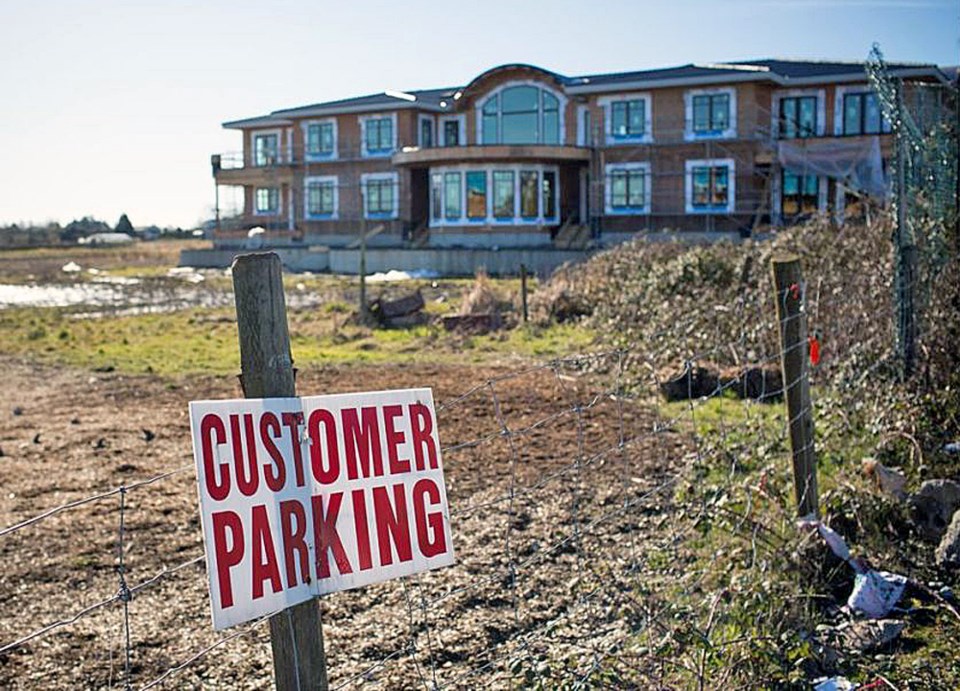The B.C. government has introduced legislation to ban mega-mansions on agricultural farmland by overriding local zoning in cities such as Richmond.
Agriculture Minister Lana Popham tabled a bill Monday that would restrict the maximum size of a home on agricultural land reserve property to 5,400 square feet.
That size is already the standard under current ministry guidelines, but until now the province has allowed municipalities to set their own bylaws on the issue. Richmond, where the problem of mansions on farmland is most acute, set in 2017 the maximum house size of 10,743 square feet on agricultural land.
“We have five per cent of the land base that’s arable for food and every time you create something like a mega-mansions on that land what it ensures is new and young famers will never be able to farm that land,” said Popham.
“It also takes away from the capacity of that land base. So everything bigger than that will actually take away from the production area for farming.”
Popham said the changes were made because the public has told her government that it supports a much stronger approach to protecting farmland.
Larger homes could still be allowed if they receive an exemption from the agricultural land commission as necessary for farming, and municipalities would be allowed to restrict home sizes even further if they are below the provincial maximum. Existing construction projects over the maximum size will be grandfathered if the legislation passes.
The issue has been a divisive one in the farming community, with some saying speculators are purchasing cheaper farmland to build large homes that are flipped for profit, while others say large homes are necessary to house the multi-generational families that are increasingly used to operate a farm.
Popham appointed a Revitalizing the Agricultural Land Reserve and the Agricultural Land Commission group this year, which issued an interim report in July that recommended limits on housing on farmland to prevent against speculation and the non-agricultural use of the land.
Monday’s legislation would also eliminate the two-zone structure of the ALR, which was created several years ago by the previous Liberal government out of recognition that farmland in different parts of the province require different considerations. The bill proposes to restore one zone for ALR land across the province.
It would also restrict the dumping of soil fill, waste and construction debris on farmland, along with boosting penalties. Dumping can permanently damage agricultural soil and is on the rise, according to the government. New penalties would allow a maximum fine of $1 million and six months in prison.



